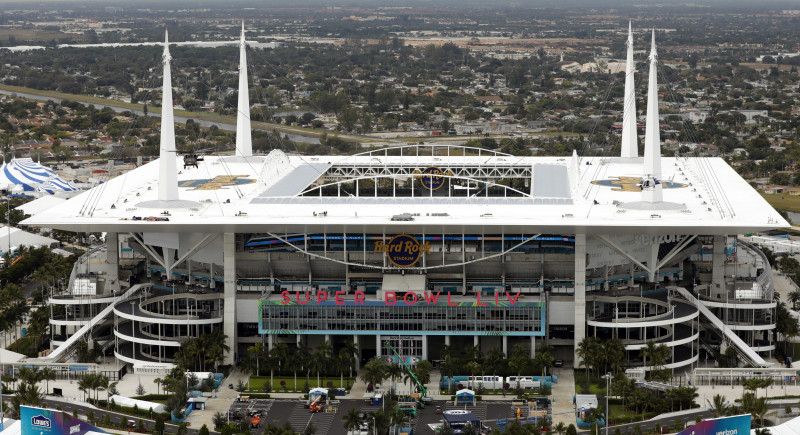Hard Rock Stadium, located in Miami Gardens, Florida, is a multi-purpose stadium serving as the home field for both the Miami Dolphins (NFL) and the Miami Hurricanes (University of Miami's NCAA football team). It's a major venue for sporting events.
1937: Miami Hurricanes played at Miami Orange Bowl
From 1937 until 2008, the Miami Hurricanes played their home games at the Miami Orange Bowl.
1948: 1948 World Series Attendance
In 1948, the Cleveland Stadium reached some of the highest post season attendance figures during the World Series.
1954: 1954 World Series Attendance
In 1954, the Cleveland Stadium reached some of the highest post season attendance figures during the World Series.
1959: 1959 World Series Attendance
In 1959, the Los Angeles Memorial Coliseum reached some of the highest post season attendance figures during the World Series.
1977: Exhibition Stadium home to the Toronto Blue Jays
From 1977 to 1989, the Toronto Blue Jays played at Exhibition Stadium.
1983: Miami Hurricanes have won five national championships since 1983
The Miami Hurricanes college football team has won five national championships since 1983.
August 16, 1987: First preseason game at the stadium
On August 16, 1987, the first preseason game was played at the stadium between the Miami Dolphins and the Chicago Bears.
October 11, 1987: First regular season NFL game played at stadium
On October 11, 1987, the first regular season NFL game was played at the stadium, a 42–0 victory for the Miami Dolphins over the Kansas City Chiefs with replacement players due to the 1987 NFL strike.
1987: Joe Robbie Stadium located in unincorporated Miami-Dade County
In 1987, Joe Robbie Stadium was located in unincorporated Miami-Dade County, specifically in the Scott Lake census-designated place, with a Miami address.
1987: Facility opened as Joe Robbie Stadium
In 1987, the facility opened as Joe Robbie Stadium.
1988: Australian Rules Football Exhibition
In 1988, Hard Rock Stadium hosted an Australian rules football exhibition match between Collingwood and Geelong, played on the diagonal due to the stadium's shape.
1989: Exhibition Stadium home to the Toronto Blue Jays
From 1977 to 1989, the Toronto Blue Jays played at Exhibition Stadium.
1990: Blockbuster Bowl
In 1990, Hard Rock Stadium began hosting a bowl game known as the Blockbuster Bowl.
1990: Wayne Huizenga purchased 50% of Joe Robbie Stadium
In 1990, Wayne Huizenga purchased 50% of Joe Robbie Stadium and led the effort to bring Major League Baseball to South Florida.
1992: 1992 AFC Championship Game
In 1992, the stadium hosted the AFC Championship Game, which the Dolphins lost to the Buffalo Bills 29–10.
1992: Land donation lawsuit blocked refurbishment
The family who originally owned the land filed a lawsuit in 1992 that blocked a $50 million refurbishment of the aging facility, including the addition of three permanent stadium courts.
April 5, 1993: First Marlins game at Joe Robbie Stadium
On April 5, 1993, the first Marlins game was played at Joe Robbie Stadium, resulting in a 6–3 victory over the Los Angeles Dodgers.
1993: Florida Marlins Home Field
From 1993, the stadium served as the home field to the Florida Marlins of Major League Baseball.
1993: Home field for the Florida Marlins
From 1993, the stadium was the home field of the Florida Marlins MLB team.
1993: Marlins Begin Play
In 1993, when the Marlins began play at Hard Rock Stadium, it was one of 14 stadiums hosting both an MLB and a professional football team.
January 24, 1994: Wayne Huizenga acquired 100% ownership of stadium
On January 24, 1994, Wayne Huizenga acquired the remaining 50% of the stadium to give him 100% ownership.
1994: Proposed 1994 FIFA World Cup matches could not be held at the stadium
Proposed 1994 FIFA World Cup matches could not be held at the stadium, as this June–July tournament conflicted directly with Marlins home games; Orlando's Citrus Bowl was used instead.
August 26, 1996: Stadium renamed Pro Player Park
On August 26, 1996, the stadium was renamed Pro Player Park after Wayne Huizenga sold the naming rights to Pro Player, the sports apparel division of Fruit of the Loom.
1996: Orange Bowl at the Stadium
Since 1996, Hard Rock Stadium has been the site of the Orange Bowl game.
1997: Marlins' World Series Appearance
During the Marlins' World Series appearance in 1997, sight lines for baseball at Hard Rock Stadium were not optimal due to the stadium's primary design for football.
1997: 1997 World Series
In 1997, the Marlins played before crowds of over 67,000 fans at Hard Rock Stadium during the World Series.
1998: Mark McGwire's Home Run Record
In 1998, Mark McGwire hit his NL-record 57th home run at Hard Rock Stadium.
January 1999: Orange Bowl Relocation
In January 1999, the Orange Bowl game between Florida and Syracuse was moved from Hard Rock Stadium due to a conflict with a Miami Dolphins playoff game.
2000: MicronPC Bowl Moved
In 2000, the bowl game that had been known as the Blockbuster Bowl, CarQuest Bowl and MicronPC Bowl, was moved from Hard Rock Stadium to Orlando.
2001: Florida Atlantic Owls Home Field
In 2001, Hard Rock Stadium briefly became the home field for the Florida Atlantic Owls.
2001: Hosted 2001 BCS National Championship Game
In 2001, the stadium hosted a BCS National Championship Game.
2002: Florida Atlantic Owls Home Field
In 2002, Hard Rock Stadium briefly became the home field for the Florida Atlantic Owls.
May 13, 2003: Miami Gardens incorporated
On May 13, 2003, the city of Miami Gardens, where the stadium is located, was incorporated.
2003: Marlins' World Series Appearance
During the Marlins' World Series appearance in 2003, sight lines for baseball at Hard Rock Stadium were not optimal due to the stadium's primary design for football.
2004: Only National League park hosting MLB and NFL team
By 2004, renamed Pro Player Stadium was the only National League park that played host to both an MLB and an NFL team due to a wave of baseball-only parks.
January 2005: Stadium renamed Dolphins Stadium
In January 2005, the stadium was renamed Dolphins Stadium, coinciding with a renovation of the stadium.
2005: Hosted 2005 BCS National Championship Game
In 2005, the stadium hosted a BCS National Championship Game.
April 2006: New video boards unveiled
In April 2006, the stadium unveiled two Daktronics large video boards and a new LED ribbon board.
April 2006: Stadium renamed Dolphin Stadium
In April 2006, the stadium was renamed Dolphin Stadium in an update of graphics and logos.
2006: Dan Uggla Played for Marlins
From 2006, Dan Uggla played for the Marlins at Hard Rock Stadium.
2007: Super Bowl XLI marred by heavy rains
Super Bowl XLI in 2007 at Dolphin Stadium, when the Indianapolis Colts defeated the Chicago Bears 29–17, was marred by heavy rains, resulting in an estimated 30% of the lower-level seating being empty during the second half.
June 9, 2008: Ken Griffey Jr.'s 600th Home Run
On June 9, 2008, Ken Griffey Jr. hit his 600th career home run at Hard Rock Stadium off Mark Hendrickson of the Marlins.
2008: Miami Hurricanes move to Hard Rock Stadium
From 1937 until 2008, the Miami Hurricanes played their home games at the Miami Orange Bowl.
2008: Miami Hurricanes Home Field
Since 2008, Hard Rock Stadium has served as the home field for the Miami Hurricanes football team.
2008: Shula Bowl at the Stadium
Until 2008, Hard Rock Stadium hosted the Shula Bowl in even numbered years, when Florida Atlantic University (FAU) hosted Florida International University (FIU).
January 2009: Playoff loss to Baltimore Ravens
In January 2009, the Dolphins lost a playoff game against the Baltimore Ravens at the stadium.
May 8, 2009: Stadium renamed Land Shark Stadium
On May 8, 2009, the stadium's renaming to Land Shark Stadium was announced. This was after Stephen M. Ross partnered with Jimmy Buffett. The name came from a beer brewed for Buffett's Margaritaville restaurant chain.
2009: 2009 BCS National Championship Game
In 2009, Hard Rock Stadium hosted the BCS National Championship Game.
2009: Hosted 2009 BCS National Championship Game and World Baseball Classic
In 2009, the stadium hosted a BCS National Championship Game and the second round of the World Baseball Classic.
January 20, 2010: Stadium renamed Sun Life Stadium
On January 20, 2010, Sun Life Financial, a Canadian financial services company, announced that it had acquired the naming rights, renaming the stadium to Sun Life Stadium.
May 29, 2010: Roy Halladay's Perfect Game
On May 29, 2010, Roy Halladay of the Philadelphia Phillies pitched the 20th perfect game in Major League Baseball history at Hard Rock Stadium against the Marlins.
2010: NFL threatened to remove stadium from Super Bowl consideration
In 2010, the NFL threatened to take the stadium out of further consideration for a Super Bowl or Pro Bowl unless significant renovations were made.
2010: Sun Life Stadium
The stadium was renamed Sun Life Stadium in 2010.
2010: Dan Uggla Played for Marlins
Until 2010, Dan Uggla played for the Marlins at Hard Rock Stadium.
August 3, 2011: FC Barcelona vs. C.D. Guadalajara Match
On August 3, 2011, Hard Rock Stadium hosted a match between FC Barcelona and C.D. Guadalajara as part of the 2011 World Football Challenge, with Guadalajara winning 4–1 in front of 70,080 attendees.
2011: Last year as home field for the Florida Marlins
2011 was the last year that the stadium served as the home field for the Florida Marlins MLB team.
2011: FAU Opens Stadium
In 2011, Florida Atlantic University (FAU) opened FAU Stadium on its Boca Raton campus.
2011: Braves' Last Game at the Stadium
In 2011, when the Atlanta Braves played their last game at Hard Rock Stadium, Dan Uggla expressed that he was one of the few Braves players who would miss the stadium.
April 1, 2012: WrestleMania XXVIII
On April 1, 2012, Hard Rock Stadium hosted WrestleMania XXVIII, a WWE event featuring The Rock defeating John Cena and The Undertaker defeating Triple H. The event had an attendance of 78,363 and grossed $67 million.
July 28, 2012: Milan vs. Chelsea Match
On July 28, 2012, Milan won against Chelsea with 1-0 in a match at Hard Rock Stadium, in front of 57,748 fans.
2012: FAU Hosts Shula Bowl
In 2012, Florida Atlantic University (FAU) began hosting the Shula Bowl biennially at FAU Stadium.
2012: Dolphins scrapped plans for partial stadium roof
In 2012, the Dolphins scrapped plans for pitching a $200 million hotel tax proposal that would have included a partial stadium roof.
2012: Marlins left for Marlins Park
In 2012, the Marlins left the stadium for their own stadium, Marlins Park (now LoanDepot Park).
November 16, 2013: Brazil vs. Honduras Friendly
On November 16, 2013, Brazil beat Honduras 5–0 in a friendly match at Hard Rock Stadium, with an attendance of 71,124, which was the highest for a soccer match at the stadium.
2013: 2013 BCS National Championship Game
In 2013, the BCS National Championship Game between Alabama and Notre Dame was held at Hard Rock Stadium, setting a new attendance record of 80,120.
June 9, 2014: South Korea vs. Ghana Match
On June 9, 2014, South Korea played against Ghana at Hard Rock Stadium.
August 4, 2014: 2014 International Champions Cup Final
On August 4, 2014, the 2014 International Champions Cup preseason final was held at Hard Rock Stadium, with Manchester United defeating Liverpool 3–1.
2014: $350 million stadium renovation project began after the 2014 Orange Bowl
In January 2015, a privately funded $350 million stadium renovation project began after the 2014 Orange Bowl.
January 2015: $350 million stadium renovation project began
In January 2015, a privately funded $350 million stadium renovation project began after the 2014 Orange Bowl.
February 2015: Preview center opened at the stadium
In February 2015, a preview center opened at the stadium to help current and prospective season ticket holders select their ticket packages.
August 14, 2015: Dolphins announce Sun Life deal expiration
On August 14, 2015, the Miami Dolphins announced that Sun Life's naming rights deal would expire in January 2016 and that they would not renew it, wanting to rebrand the renovated stadium.
2015: Last Monster Jam Show
In 2015, the last Monster Jam show was performed at Hard Rock Stadium.
August 2016: Naming rights sold to Hard Rock Cafe Inc.
In August 2016, the team sold the naming rights to Hard Rock Cafe Inc. for $250 million over 18 years, renaming the stadium Hard Rock Stadium.
August 17, 2016: Stadium renamed Hard Rock Stadium
On August 17, 2016, the Miami Dolphins announced that the naming rights had been sold to Hard Rock Cafe International, renaming the stadium Hard Rock Stadium. This was met with some ridicule.
September 2016: Renovations Completed
In September 2016, renovations at Hard Rock Stadium were completed, including the construction of an open-air canopy to protect the seating bowl from weather elements. The canopy has a football-field-sized opening, leaving the playing field exposed.
2016: $350 million stadium renovation project completed for the 2016 season
A privately funded $350 million stadium renovation project began in January 2015 and was completed for the 2016 season.
November 2017: Miami Open announced move to Hard Rock Stadium
In November 2017, the Miami Open tennis tournament announced that it would move from Crandon Park in Key Biscayne to Hard Rock Stadium in 2019.
2017: International Champions Cup and El Clásico
In 2017, Hard Rock Stadium hosted two International Champions Cup preseason matches, including El Clásico between Barcelona and Real Madrid, with Barcelona winning 3–2 in front of 66,014 people.
March 23, 2018: Peru vs. Croatia International Friendly
On March 23, 2018, the international friendly match between Peru and Croatia was played at Hard Rock Stadium, with Peru winning 2–0.
2018: Monster Jam Moved
In 2018, the Monster Jam shows were moved to Marlins Park (now LoanDepot Park).
2018: Rolling Loud Music Festival
Since 2018, Hard Rock Stadium has hosted the Rolling Loud hip-hop music festival.
2019: Miami Open move to Hard Rock Stadium
In November 2017, the Miami Open tennis tournament announced that it would move from Crandon Park in Key Biscayne to Hard Rock Stadium in 2019.
January 2020: SkyView gondola opened
In January 2020, the stadium opened the SkyView gondola, which runs at the south side of the stadium complex and provides views of the grounds and the Miami skyline.
2020: COVID-19 Pandemic Adaptations
In 2020, during the COVID-19 pandemic, Hard Rock Stadium temporarily hosted an outdoor movie theater at the tennis campus and a drive-in theater in the stadium. The East Lot was also used as a COVID-19 testing site.
February 27, 2021: Canelo Álvarez vs. Avni Yildirim Boxing Match
On February 27, 2021, Canelo Álvarez beat Avni Yildirim at Hard Rock Stadium to defend his WBA (Super), WBC and The Ring super-middleweight titles.
April 18, 2021: Miami Grand Prix Announcement
On April 18, 2021, Formula 1 announced a 10-year deal to host the Miami Grand Prix at Hard Rock Stadium, utilizing the parking lots and service roads to create the Miami International Autodrome.
June 6, 2021: Floyd Mayweather Jr. vs. Logan Paul
On June 6, 2021, the stadium hosted the boxing event Bragging Rights between Floyd Mayweather Jr. and YouTube personality Logan Paul.
June 12, 2021: Social Gloves: YouTubers vs. TikTokers
On June 12, 2021, Hard Rock Stadium hosted the Social Gloves boxing event YouTubers vs. TikTokers, headlined by Austin McBroom and Bryce Hall.
2021: 2021 College Football Playoff National Championship Game
In 2021, Hard Rock Stadium hosted the College Football Playoff National Championship game.
2021: Baptist Health Training Complex Opens
In 2021, the Baptist Health Training Complex opened on the west side of Hard Rock Stadium. This state-of-the-art facility serves as the team headquarters for the Miami Dolphins and is a World Cup practice site.
2021: Hosted 2021 CFP National Championship
In 2021, the stadium hosted a CFP National Championship.
July 24, 2022: Rolling Loud Festival 2022
From July 22 to July 24, 2022, Hard Rock Stadium hosted the Rolling Loud festival, featuring headliners including Ye, Future, and Kendrick Lamar.
2022: 2022 College Football Playoff National Championship Semi-final Game
In 2022, Hard Rock Stadium hosted the College Football Playoff National Championship semi-final game as the Orange Bowl.
2022: Hosted Miami Grand Prix
Since 2022, the grounds of Hard Rock Stadium have hosted the Miami International Autodrome for Formula One's Miami Grand Prix.
July 14, 2024: Widespread damage reported during 2024 Copa América final
Widespread damage to the stadium was reported to have occurred during the 2024 Copa América final international soccer match which was held at Hard Rock Stadium on July 14, 2024.
2024: 2024 Copa América
In 2024, Hard Rock Stadium hosted several matches during the Copa América, including the final match of the tournament.
2024: Hosted 2024 Copa América matches
In 2024, the stadium hosted matches for the Copa América, including the final.
2025: 2025 FIFA Club World Cup
In 2025, Hard Rock Stadium is scheduled to host several matches during the FIFA Club World Cup.
January 19, 2026: 2026 College Football Playoff National Championship
Hard Rock Stadium is scheduled to host the 2026 College Football Playoff National Championship on January 19, 2026.
January 21, 2030: 2030 College Football Playoff National Championship
Hard Rock Stadium is scheduled to host the 2030 College Football Playoff National Championship on January 21, 2030.
2033: Contract signed to play at Hard Rock Stadium through 2033
The University of Miami signed a 25-year contract to play at Hard Rock Stadium through 2033.
2034: Hard Rock Cafe Inc. to retain naming rights until 2034
Hard Rock Cafe Inc. will retain the naming rights to the stadium until 2034.
Mentioned in this timeline

John Cena is an American actor and professional wrestler renowned...
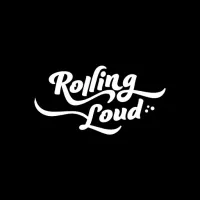
Rolling Loud is a major international hip hop music festival...

Logan Paul is an American influencer entrepreneur professional wrestler boxer...
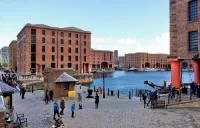
Liverpool is a port city and metropolitan borough located in...
The Kansas City Chiefs are a professional American football team...
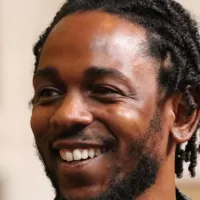
Kendrick Lamar is a highly acclaimed American rapper singer songwriter...
Trending
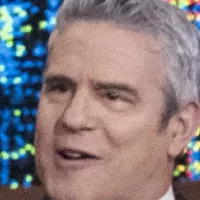
5 minutes ago Lisa Rinna's book reveals bombshells, Andy Cohen expresses thanks despite complex relationship.

5 minutes ago Colton Underwood Addresses 'Bachelor' Past and 'Traitors' Drama: Wells Adams Weighs In.
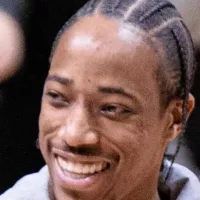
6 minutes ago DeMar DeRozan Enters Top 20 All-Time NBA Scorers, Passes Havlicek and Pierce.

6 minutes ago Maggie Gyllenhaal: Directing lessons, upcoming movie 'The Bride', and awards circuit.
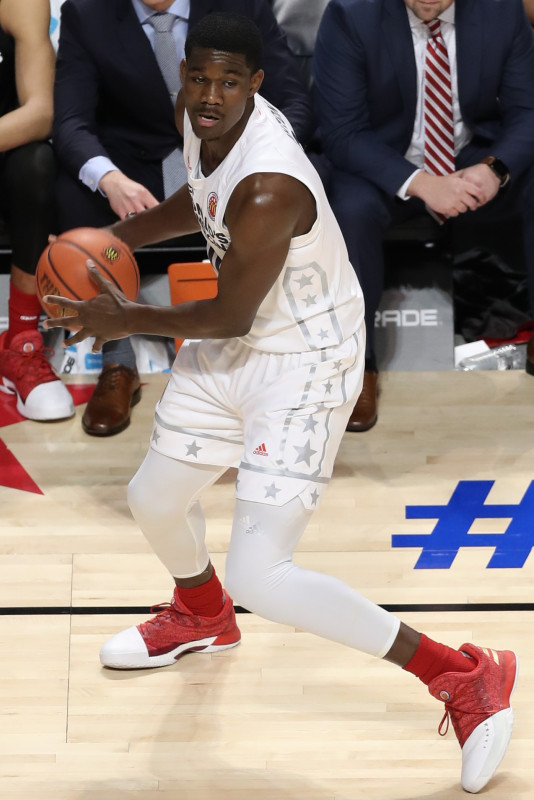
6 minutes ago Deandre Ayton's Role with Lakers: Key to Success or Source of Discontent?
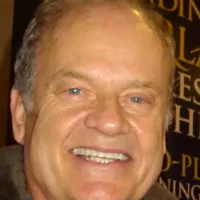
7 minutes ago Kelsey Grammer Terrifies as Cult Leader in 'The Hunting Party' Season 2
Popular

Jesse Jackson is an American civil rights activist politician and...

Barack Obama the th U S President - was the...

Susan Rice is an American diplomat and public official prominent...

XXXTentacion born Jahseh Dwayne Ricardo Onfroy was a controversial yet...

Michael Joseph Jackson the King of Pop was a highly...

Kashyap Pramod Patel is an American lawyer who became the...
